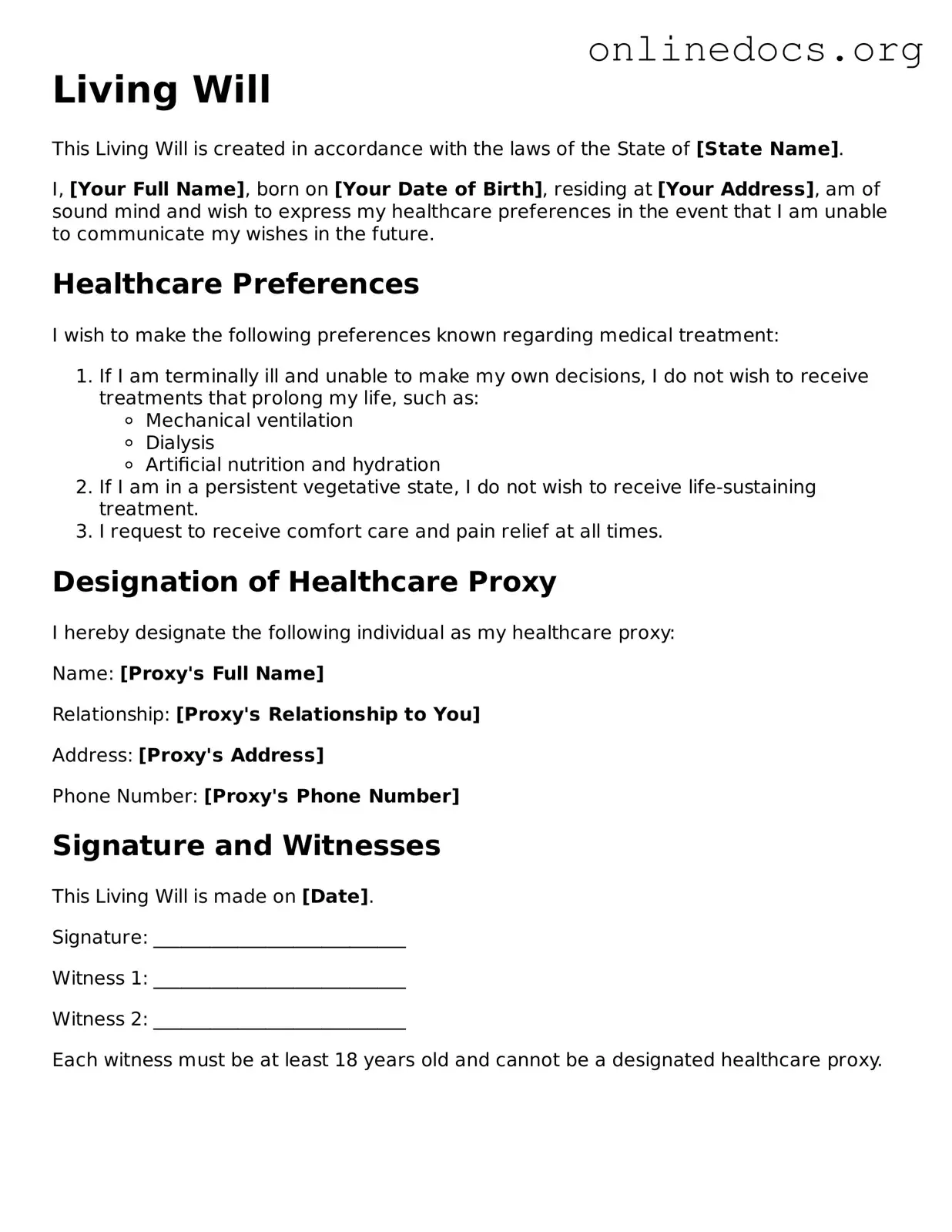Filling out a Living Will form can be a crucial step in ensuring that your healthcare wishes are honored. However, many individuals make common mistakes that can lead to confusion or even legal issues. One frequent error is failing to specify clear medical preferences. When individuals do not articulate their wishes regarding life-sustaining treatments, healthcare providers may struggle to make decisions that align with the patient’s values.
Another mistake is not discussing the Living Will with family members or healthcare proxies. Open communication is essential. Without these conversations, loved ones may not fully understand your wishes, leading to potential disagreements during critical moments. It's important to ensure that everyone involved is on the same page.
People often overlook the need to update their Living Will as circumstances change. Life events such as marriage, divorce, or the diagnosis of a serious illness can impact your preferences. Regularly reviewing and updating the document helps maintain its relevance and accuracy.
Additionally, some individuals forget to sign and date the Living Will. A document that is not properly signed may not hold up in legal situations. Ensure that you follow the required procedures for signing, including having witnesses if necessary, to make the document valid.
Lastly, many fail to store the Living Will in an accessible location. Keeping the document in a safe but hidden place can lead to delays in critical situations. Instead, share copies with trusted family members and your healthcare provider. This way, your wishes can be honored when it matters most.
